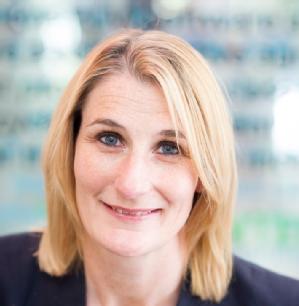WMG News - Latest news from WMG
Revolutionising the manufacturing industry through digitalisation
Until now, smaller manufacturing companies have missed out on the productivity benefits of digital technologies and data-driven solutions. Too many manufacturers don’t know where to start, and lack the skills required to deploy and use digital solutions. The costs are perceived to be high and the return on investment is unclear.
A consortium, including WMG at the University of Warwick, has been awarded funding through the Government’s Manufacturing Made Smarter Challenge to tackle this problem by developing a Smart InforMation PLatform and Ecosystem for Manufacturing (SIMPLE).
Project SIMPLE will bring the benefits of digitalisation to manufacturers for whom the technology, skills, and business benefits are currently inaccessible. The project will deliver a platform that is fast to deploy, easy to use, cost-effective, and versatile. And it will be supported by an ecosystem that addresses skills and training requirements.
The consortium includes a wide range of end-user, academic, and technology partners to provide the necessary breadth of expertise:
● Innovare Systems (construction) is representative of SMEs seeking to improve their operations through the deployment of digital capabilities, but have a low skill level in the domain, bare bones IT capabilities and low levels of automation
● Lear Corporation (automotive) is representative of global organisations challenged by their operational complexity, the diversity of technologies deployed in production, fragmented software landscape and data repositories
● The UK Battery Industrialisation Centre is seeking a vendor independent solution that can support their short-term objectives and scale up rapidly to support multiple production campaigns in the future
● WMG, University of Warwick is a world leading research and education group, transforming organisations and driving innovation through a unique combination of collaborative research and development, and pioneering education programmes
● The Science and Technology Facilities Council is a government agency that carries out research in science and engineering. The focus for project SIMPLE is on knowledge representations and knowledge models relevant to manufacturing
● Fully Distributed Systems (FDS), AI Idea Factory and 4thWall Virtual develop engineering tools, industrial software components and supply related services.
The benefits of SIMPLE will be validated via deployment of the platform at the end-user partners’ facilities - demonstrating the value in three different use cases. The deployment of a skills training system at WMG, University of Warwick, will validate the skills and training proposition.
Project SIMPLE is co-funded by the businesses in the consortium and the UK’s innovation agency, Innovate UK, through the Manufacturing Made Smarter Competition. The Industrial Strategy Challenge Fund (ISCF) Manufacturing Made Smarter Round 1 Competition offers grant funding investment in projects that focus on the use of industrial digital technologies (IDTs) to transform the productivity and agility of UK manufacturing. Of 34 applications submitted, project SIMPLE is one of 14 projects approved following independent assessment and expert review.
 Dr Daniel Vera, from WMG at the University of Warwick comments:
Dr Daniel Vera, from WMG at the University of Warwick comments:
“At WMG, we will be focussing on making sure that manufacturers become fluent in deploying and using digital systems. Our training platform will mean that manufacturers can confidently use data-driven methods and digital solutions to optimise their processes, which in turn can speed up their project delivery and significantly improve their business operations.”
Jason Powell of Innovare Systems adds:
“The technology is important as it offers greater operational transparency, which allows greater scrutiny of performance whilst maintaining the production activities’ live information. Additionally, this system can also be used as a tool to drive production efficiency through optimising performance which will increase capacity. We are expecting this technology to boost productivity by 10% even from the early deployment.”
Matt Patching of the UK Battery Industrialisation Centre said:
“The SIMPLE toolset will help us deliver battery technologies and processes to industry at a rapid rate. The flexible design will be compatible with our range of manufacturing processes, ranging from electrode and cell assembly, to module and pack, and to consistently present the relevant information. The scalable nature means that new promising technologies in the battery field can be implemented into our digital systems as quickly as it can be installed at our site.”
The project will engage the wider manufacturing community to ensure the SIMPLE platform and methodology addresses the widest set of manufacturers’ needs. For further information, please contact peter.hopkinson@fullydistributedsystems.com.
ENDS
6 JANUARY 2021
NOTES TO EDITORS
About WMG, University of Warwick
WMG is a world leading research and education group, transforming organisations and driving innovation through a unique combination of collaborative research and development, and pioneering education programmes.
As an international role model for successful partnerships between academia and the private and public sectors, WMG develops advancements nationally and globally, in applied science, technology and engineering, to deliver real impact to economic growth, society and the environment.
WMG’s education programmes focus on lifelong learning of the brightest talent, from the WMG Academies for Young Engineers, degree apprenticeships, undergraduate and postgraduate, through to professional programmes.
An academic department of the University of Warwick, and a centre for the HVM Catapult, WMG was founded by the late Professor Lord Kumar Bhattacharyya in 1980 to help reinvigorate UK manufacturing and improve competitiveness through innovation and skills development.
About Innovare Systems
As the only provider to have complete design to delivery capability in-house, Innovare Systems is uniquely placed to simplify the offsite construction process to help clients manage time, cost and risk more effectively. Innovare Systems’ aim is to make it easy for clients to achieve the time and cost saving benefits of offsite construction and make full use of the greater flexibility offered through a joined-up design, manufacture and installation solution with its i-SIP panel system.
About Lear Corporation
Lear, a global automotive technology leader in Seating and E-Systems, enables superior in-vehicle experiences for consumers around the world. Lear’s diverse team of talented employees in 39 countries is driven by a commitment to innovation, operational excellence, and sustainability. Lear is Making every drive better™ by providing the technology for safer, smarter, and more comfortable journeys.
About UKBIC
The £130 million UK Battery Industrialisation Centre (UKBIC) is a pioneering concept in the race to develop battery technology for the transition to a greener future. The unique facility provides the missing link between battery technology, which has proved promising at laboratory or prototype scale, and successful mass production. Based in Coventry, the publicly-funded battery product development facility welcomes manufacturers, entrepreneurs, researchers and educators, and can be accessed by any organisation with existing or new battery technology – if that technology will bring green jobs and prosperity to the UK.
In addition to funding from the Faraday Battery Challenge through UK Research and Innovation and the Industrial Strategy Challenge Fund, UKBIC is also part-funded through the West Midlands Combined Authority. The project has been delivered through a consortium of Coventry City Council, Coventry and Warwickshire Local Enterprise Partnership and WMG, at the University of Warwick. UKBIC was created in 2018 following a competition led by the Advanced Propulsion Centre with support from Innovate UK
About Fully Distributed Systems
FDS specialises in the development and integration of control and software solutions for manufacturing industries. In the last 5 years, FDS has developed expertise in the development and deployment of Industrial IoT integration platforms and common manufacturing and production data models, in line with the requirements of Industry 4.0 and digital manufacturing solution development.
For further information please contact
Alice Scott
Media Relations Manager – Science
University of Warwick
Tel: +44 (0) 7920 531 221
E-mail: alice.j.scott@warwick.ac.uk
Universities of Warwick and Birmingham partner to boost West Midlands economy
Ways to reduce social inequality in the West Midlands and boost productivity will be researched thanks to an £800,000 research project, led by Warwick Business School with WMG at the University of Warwick, and City-REDI at the University of Birmingham.
WMG and Warwick Business School from the University of Warwick and City-REDI at the University of Birmingham will examine the factors that constrain firm-level innovation and productivity across the region, with a particular focus on the role of skills shortages, the importance of supply chains and impacts of foreign direct investment.
They will also work in collaboration with regional stakeholders, including the West Midlands Combined Authority, the Midlands Engine, five Local Enterprise Partnerships and private sector firms including Jaguar Land Rover and Aston Martin. More widely, the project will connect with the CBI - building on their recent productivity work- the Chambers of Commerce, TUC and Unite.
As well as contributing to the local industrial strategy the research team will examine trade-offs between policies and practices which target improvements in productivity against other development goals.
In particular, understanding how productivity improvements and related policies can contribute to inclusive growth which reduces inequalities within and across regions, or heighten such inequalities is a central aim of the research.
Professor Nigel Driffield, the leader of the project from WBS, University of Warwick said:

“This is an exciting project that will look to feed into the region’s industrial strategy. The West Midlands is known as the manufacturing hub of the UK, but it needs to build on this reputation, attracting more investment and more jobs to the area, particularly with the threat of Brexit looming.
"This project has three stands: researching regional Differences, skills and inclusive growth, plus investigating investment decisions, foreign investment and trade; and finally evaluating analytics enabled supply chains and operational productivity.”
Professor Janet Godsell of WMG, University of Warwick comments:

“For over 25 years it has been recognised that supply chains compete and not individual companies, but the focus has remained on company productivity.
"This project provides an opportunity to create a step change in productivity, by working with end-to-end supply chains supporting the regions automotive and infrastructure sectors, to improve end-to-end supply chain productivity.”
Director of City-REDI and project lead for Birmingham, Professor Simon Collinson, said:
“I am very pleased to be working with our partners at Warwick University on a project that is so critical to the future economic well-being of the region. The UK lags behind other countries in terms of average productivity and the West Midlands lags behind the UK average.
"But we cannot focus on productivity in isolation of other challenges. By contributing to a reduction in social inequality, alongside promoting economic growth, we are continuing the legacy of the University of Birmingham as a long-standing anchor institution in the Birmingham city-region.”
Professor Anne Green from City-REDI said:
“The foci of the research at City-REDI on skills and inclusive growth issues is in line with key concerns with regional policy makers.”
WMG and GEFCO to revolutionise automotive battery supply chain
A new innovation hub is being launched at WMG in partnership with GEFCO today. The Hub will focus on cutting edge research into the future of automotive supply chains, the dual challenges of electrification and using and reusing resources for as long as possible.
The hub is closely linked to the EPSRC(Engineering and Physical Sciences Research Council) Sustainable Materials and Manufacturing Centre for Doctoral Training at the University of Warwick.
The first two projects will research new circular business models for the supply, refurbishment and re-use of batteries for the electric automotive supply chain, and the use of new technologies to design fully-traceable and re-usable packaging.
A third project will examine the opportunities for logistics service providers to expand their business models to offer supply chain finance complimentary to out-sourcing of material and information flows.
 Professor Janet Godsell, from the Supply Chain Research Group, WMG, University of Warwick will head up the new hub, she comments: “Digital technology provides an opportunity to re-think the way in which we do business, and blurs the traditional distinction between manufacturing and logistics. A distinction further blurred as we seek to develop new business models that more holistically consider reuse, repair, remanufacture and recycling.”
Professor Janet Godsell, from the Supply Chain Research Group, WMG, University of Warwick will head up the new hub, she comments: “Digital technology provides an opportunity to re-think the way in which we do business, and blurs the traditional distinction between manufacturing and logistics. A distinction further blurred as we seek to develop new business models that more holistically consider reuse, repair, remanufacture and recycling.”
Helen Grover, Human Resources Director at GEFCO UK comments:
“We are delighted to work with GEFCO to launch their Supply Chain Innovation Hub at WMG, University of Warwick. This £180k investment will support GEFCO to provide leading edge digital supply chain solutions that meet their customer needs in a cost effective and sustainable way.
“We are looking forward to working with WMG, University of Warwick because it allows us to be involved with cutting edge research and puts us at the forefront of the future of sustainable manufacture and logistics. The partnership sits perfectly with our company ethos of always seeking new innovative solutions to maintain our growth and to improve the way our industry works”.
ENDS
About GEFCO
At GEFCO, we believe long-lasting cooperation with partners is the key to shared growth. Building on 69 years of expertise and a strong heritage in the automotive industry, we design smart, flexible solutions for complex supply chains. Today, the GEFCO Group is the European leader in automotive logistics, and a top 10 global partner in multimodal supply chain solutions.
The Group is present in 47 countries, includes over 300 destinations in its current network and employs 13,000 people globally. GEFCO reported a turnover of €4.4 billion in 2017.
GEFCO has been present in the UK since 1981. With headquarters located in Coventry, GEFCO UK employs 600 people in 18 sites. https://uk.gefco.net/
Website: www.gefco.net; Twitter: @GEFCO_Group
New research finds that artificial intelligence can dramatically cut time needed to process abnormal chest x-rays
New research has found that a novel Artificial Intelligence (AI) system can dramatically reduce the time needed to ensure that abnormal chest X-rays with critical findings will receive an expert radiologist opinion sooner, cutting the average delay from 11 days to less than 3 days. Chest X-rays are routinely performed to diagnose and monitor a wide range of conditions affecting the lungs, heart, bones, and soft tissues.
Researchers from WMG at the University of Warwick, working with Guy’s and St Thomas’ NHS Hospitals, extracted a dataset of half million anonymised adult chest radiographs (X-rays) and developed an AI system for computer vision that can recognise radiological abnormalities in the X-rays in real-time and suggest how quickly these exams should be reported by a radiologist. In the process of building the AI system, the team developed and validated a Natural Language Processing (NLP) algorithm that can read a radiological report, understand the findings mentioned by the reporting radiologist, and automatically infer the priority level of the exam. By applying this algorithm to the historical exams, the team generated a large volume of training exams that allowed the AI system to understand which visual patterns in X-rays were predictive of their urgency level.
The research team, led by Professor Giovanni Montana, Chair in Data Science in WMG at the University of Warwick, found that normal chest radiographs were detected with a positive predicted value of 73% and a negative predicted value of 99%, and at a speed that meant that abnormal radiographs with critical findings could be prioritised to receive an expert radiologist opinion much sooner than the usual practice.
detected with a positive predicted value of 73% and a negative predicted value of 99%, and at a speed that meant that abnormal radiographs with critical findings could be prioritised to receive an expert radiologist opinion much sooner than the usual practice.
The results of the research are published today, 22nd January 2019 in the leading journal Radiology in a paper entitled “Automated triaging and prioritization of adult chest radiographs using deep artificial neural networks.”
WMG’s Professor Giovanni Montana said:
“Artificial intelligence led reporting of imaging could be a valuable tool to improve department workflow and workforce efficiency. The increasing clinical demands on radiology departments worldwide has challenged current service delivery models, particularly in publicly-funded healthcare systems. It is no longer feasible for many Radiology departments with their current staffing level to report all acquired plain radiographs in a timely manner, leading to large backlogs of unreported studies. In the United Kingdom, it is estimated that at any time there are over 300,000 radiographs waiting over 30 days for reporting. The results of this research shows that alternative models of care, such as computer vision algorithms, could be used to greatly reduce delays in the process of identifying and acting on abnormal X-rays - particularly for chest radiographs which account for 40% of all diagnostic imaging performed worldwide. The application of these technologies also extends to many other imaging modalities including MRI and CT.”
ENDS
Note for Editors:
All historical radiographs in our dataset were formally reported by one of 276 different reporters including board-certified radiologists, trainee radiologists and accredited reporting radiographers. The reports and images used in this study were anonymized prior to modelling thus did not contain any referral information or patient-identifying data.
Construction in the UK revolutionised by £2.5m project to unite business and research
WMG is part of a new £2.5m project to bring together businesses and researchers to help overhaul construction practices in the UK.
The way buildings are constructed has changed relatively little in the last 40 years and has not seen the same increase in productivity or innovation as other industries. This project - called the Transforming Construction Network Plus (N+) - is one of the investments within the Transforming Construction Challenge (TCC), a programme supported by the UK government's Industrial Strategy Challenge Fund.
The overall Transforming Construction Challenge looks to enable the sector to produce safe, healthy, efficient buildings using the latest digital manufacturing techniques. These will be more energy efficient structures, using modern materials and digital design methods to build better buildings for people in the UK. N+ will support the industry to adopt these technologies and help buildings to be constructed 50% faster, 33% cheaper and with half the lifetime carbon emissions.
The purpose of the Transforming Construction Network Plus is to create a new community of researchers and a body of knowledge to inform future construction policy and practice to achieve the TCC’s overarching goals. With £1m to invest in a raft of new research projects over the next two years, the Transforming Construction Network Plus (N+) will mobilise a new movement in the construction community.
N+ will issue two open calls for small research projects, funding up to 20 academic-led and user-inspired projects to generate new research findings. Academics from a range of disciplines will take part and work together with users, as project partners, to develop new ideas for transforming construction.
N+ focuses on supporting research that looks at construction as a production 'system' for built assets that adds value to cities and their infrastructures. Transforming design, construction and operation of buildings is a problem that demands input from a wide range of backgrounds and disciplines, which is why major, coordinated investments are being made through the TCC.
The research supported through the N+ will focus on the gaps, inter-relationships and under-explored regions of this domain, spanning digital, energy, construction and manufacturing expertise, in line with the expectations of the Industrial Strategy Construction Sector Deal.
The N+ will address a future in which the UK designs, constructs and operates buildings by realising the potential for integrating advanced offsite manufacturing with state-of-the-art digital design and energy generation and storage technologies. By exploring and synthesising knowledge of how people and communities experience and interact with the built environment, N+ will foster new approaches to the provision of inspiring buildings that give rise to greater user satisfaction and productivity.
 Professor of Operations and Supply Chain Strategy Janet Godsell comments: “Digital technology provides a once in a lifetime opportunity to connect the fragmented pockets of good practice that exist across construction supply chains, to transform construction.”
Professor of Operations and Supply Chain Strategy Janet Godsell comments: “Digital technology provides a once in a lifetime opportunity to connect the fragmented pockets of good practice that exist across construction supply chains, to transform construction.”
Professor Jacqueline Glass, UCL’s Principal Investigator for the N+, said: “With the N+, we have an extraordinary opportunity to tackle longstanding problems which have held back UK construction for decades. We are delighted to be collaborating with researchers from Imperial College London and WMG, University of Warwick to create an integrating agenda for a fragmented industry, by building a new movement of researchers and delivering an evidence-based manifesto for change.”
Jennifer Rubin, ESRC Executive Chair said: “This is innovative, inspiring work that has the potential to impact on the places we work and live in while positioning the UK as an industry leader on the international stage for construction technologies and businesses. ESRC is excited to be working on this project on behalf of UKRI.”
Notes to editors:
The full team are:
· Professor Jacqui Glass, N+ Principal Investigator and Chair of Construction Management, UCL Bartlett School of Construction and Project Management
· Co-Investigator - Professor Andrew Davies, The Bartlett School of Construction and Project Management, University College London
· Dr Martin Davies, Director of Business and Innovation Partnerships, UCL Innovation and Enterprise
· Professor Jan Godsell, N+ Co-Investigator and Professor of Operations and Supply Chain Strategy, WMG, University of Warwick
· Professor Jennifer Whyte, N+ Co-Investigator and Laing O'Rourke/RAEng Chair in Systems Integration, Department of Civil and Environmental Engineering, Imperial College London
· Co-Investigator - Professor Paul Ruyssevelt, UCL Energy Institute, University College London
The Industrial Strategy sets out a long term plan to boost the productivity and earning power of people throughout the UK. It sets out how we are building a Britain fit for the future – how we will help businesses create better, higher-paying jobs in every part of the UK with investment in skills, industries and infrastructure.
It’s a hat trick!
Three WMG Professors have now joined the The Alan Turing Institute as Fellows.
 Our Professor of Cyber Systems Engineering Carsten Maple, Professor of Data Science, Giovanni Montana, and Professor of Marketing and
Our Professor of Cyber Systems Engineering Carsten Maple, Professor of Data Science, Giovanni Montana, and Professor of Marketing and  Service Systems Irene Ng; are now all part of the prestigious line-up of expert Fellows.
Service Systems Irene Ng; are now all part of the prestigious line-up of expert Fellows.
The Alan Turing Institute is a national body championing data science and artificial intelligence research. It was created by five founding universities - Cambridge, Edinburgh, Oxford, UCL and the University of Warwick plus the EPSRC, with a further eight new universities – Leeds, Manchester, Newcastle, Queen Mary University of London, Birmingham, Exeter, Bristol, and Southampton – joining in 2018.
WMG report reveals digital supply chain concerns
A report by WMG Supply Chain researchers, and JDA Software Inc, has revealed that manufacturers are still struggling to effectively integrate and analyse supply chain data, with many still only in the very early stages of digital supply chain adoption.
The report, ‘Delivering the Digital Dividend,’ benchmarked the digital supply chain readiness of 179 European manufacturers, revealing that only 13 per cent currently have a ‘prescriptive’ supply chain (categorised as level 3, out of a scale of 1-4, with 4 being a self-learning autonomous supply chain).
However, crucially, the report does reveal that manufacturers are keen to digitally transform their supply chains, with almost one third (31 per cent) predicting they will have a prescriptive supply chain in place by 2023.
WMG Professor crowned Real Impact award winner
 We are pleased to announce that our Professor of Operations and Supply Chain Strategy, Jan Godsell, has been recognised as the first ever winner of the Real Impact Awards ‘Individual’ category.
We are pleased to announce that our Professor of Operations and Supply Chain Strategy, Jan Godsell, has been recognised as the first ever winner of the Real Impact Awards ‘Individual’ category.
Professor Godsell, who was nominated for the award by our Chairman Professor Lord Bhattacharyya, impressed the judges with the way that she puts practitioners, policy makers and the public at the heart of her scholarship, and her innovative approach to building impact through storytelling, poems, physical artwork and the media.
The Real Impact Awards celebrate the commitment to impact by the research community across the globe, honour the change-makers, and bring together key stakeholders in the impact debate.
The awards aim to raise the profile of individuals, teams and institutions that have placed real impact at the top of their agenda; recognise innovative approaches to impact; celebrate interdisciplinary research; bridge the gap between research and practice; and tell real impact success stories and showcase those driving the debate.
Top European award for Dr Mortenson’s operational research paper
Dr Michael Mortenson’s research paper ‘Operational research from Taylorism to Terabytes: A research agenda for the analytics age’, has been awarded the Euro Award for the Best European Journal of Operational Research (EJOR) paper 2018, in the Review category.
EJOR publishes high quality, original papers that contribute to the methodology of operational research (OR) and to the practice of decision-making. It is widely considered to be the top European journal and within the top three worldwide, in this specific area.
Dr Mortenson is a Senior Teaching Fellow on our e-Business Management MSc programme, his paper identified a significant lack of research into analytics in operational research orientated publications charting the history of operational research, analytics and a range of related disciplines. His work also paves the way for future research combining key themes in analytics and operational research. The full paper can be found here
Dr Mortenson was presented with his award at the European Conference on Operational Research (EURO) in July.
The digital journey – are you ready?
Are you a business who could benefit from automating your manufacturing processes?
Breakfast session with our experts: Wednesday 27th June, 8am to 10am
Our Business Team are holding a breakfast meeting, on Wednesday 27 June, to help businesses prepare and take advantage of the revolution in digital industry.
This session will show how collecting data can give you a greater insight into how to run your machines and operations more effectively, plan maintenance and introduce new processes without scarifying productivity. It will also show how new measurement techniques can give greater in-line data and how computer control has led to an entirely new way to make things.
